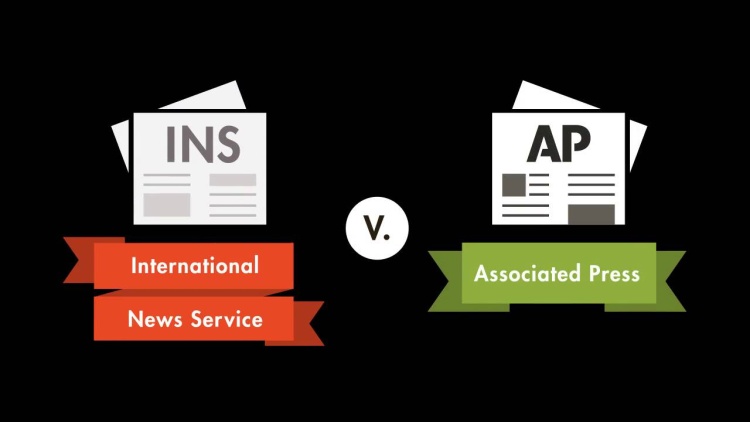International News Service v. Associated Press
United States Supreme Court
248 U.S. 215 (1918)
- Written by Megan Petersen, JD
Facts
Associated Press (AP) (plaintiff) was a news-gathering service that served 900 newspapers throughout the United States on an annual operating budget of $3,500,000. International News Service (INS) (defendant) was the chief competitor news service to AP. INS serviced 400 newspapers on a budget of $2,000,000. AP brought suit against INS seeking an injunction prohibiting INS from pirating AP’s news. Specifically, AP alleged INS was bribing AP’s members to furnish AP news to INS so INS could then publish the news to its own clients. Additionally, AP alleged that INS induced AP’s employees to ignore company bylaws and provide news to INS before publication. Finally, AP alleged INS copied news from bulletin boards and early editions of AP’s newspapers, and then sold the news to INS’s own customers. At trial, AP presented evidence that INS took news published by AP on AP’s bulletin boards on the East Coast and took advantage of the time difference, combined with telephonic and telegraphic technology, to sell the news as INS’s own to INS’s West Coast customers. The trial court granted a preliminary injunction to AP on its first and second allegations against INS. However, it refused to grant an injunction restraining INS’s practice of stealing news from AP’s bulletin boards and early editions. The appellate court sustained the injunction and extended it to include AP’s third allegation. The United States Supreme Court granted certiorari.
Rule of Law
Issue
Holding and Reasoning (Pitney, J.)
Dissent (Brandeis, J.)
What to do next…
Here's why 904,000 law students have relied on our case briefs:
- Written by law professors and practitioners, not other law students. 47,100 briefs, keyed to 995 casebooks. Top-notch customer support.
- The right amount of information, includes the facts, issues, rule of law, holding and reasoning, and any concurrences and dissents.
- Access in your classes, works on your mobile and tablet. Massive library of related video lessons and high quality multiple-choice questions.
- Easy to use, uniform format for every case brief. Written in plain English, not in legalese. Our briefs summarize and simplify; they don’t just repeat the court’s language.





